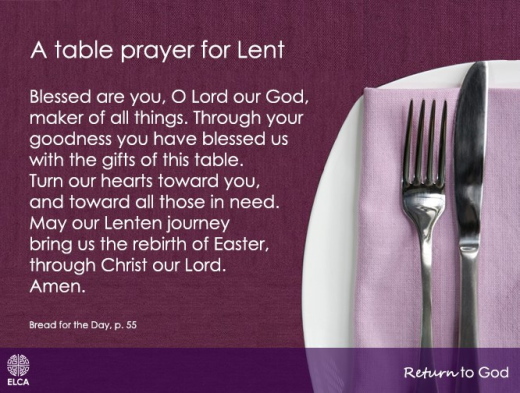Jesus first mentioned a betrayal when He predicted His sufferings to His...
Lenten Devotions from Lutheran Hour Ministries
"The Betrayer"
April 1, 2017
(Jesus said) "Behold, the hand of him who betrays Me is with Me on the table" (Luke 22:21, ESV).
Read Luke 22:21-23
Jesus first mentioned a betrayal when He predicted His sufferings to His disciples. Now at the Last Supper He staggers His disciples with the words, "Behold, the hand of him who betrays Me is with Me on the table."
Judas must have been dumbstruck. Jesus has just put the secret he has carefully hidden out on the table for all to see. The tables have completely turned, and Judas is at Jesus' mercy. He has the power to betray Judas into the other disciples' hands or, at the very least, He can foil any attempt Judas may make to try to betray Him.
Now that He has Judas' fearful attention, Jesus continues, "The Son of Man goes as it has been determined." No one will force the Son of God to His sufferings-not Judas, not the Jewish leaders, not the Roman governor-but in order to fulfill His Father's will and to save mankind He willingly goes to His death.
But Jesus' focus is not on Himself; it's on Judas, "But woe to that man by whom He is betrayed." Jesus wants it to sink in. Like so many of the sins we contemplate, Judas doesn't understand the full magnitude of what he is about to do. Jesus wants him to understand, so he will confess his sin now and receive Jesus' pardon and forgiveness-before it is too late.
The disciples question among themselves who it is who would do this dastardly act. Jesus could do to Judas that which Judas agreed to do to Him. It is in His power to betray Judas to them. But He shields and protects him instead.
THE PRAYER: Lord Jesus, You reached out to Judas with true love and concern, urging him to repent and believe. Destroy my love of worldly things that I may repent and trust in You alone. Amen
Use these devotions in your newsletter and bulletin! Used by permission; all rights reserved by the Int'l LLL (LHM).










